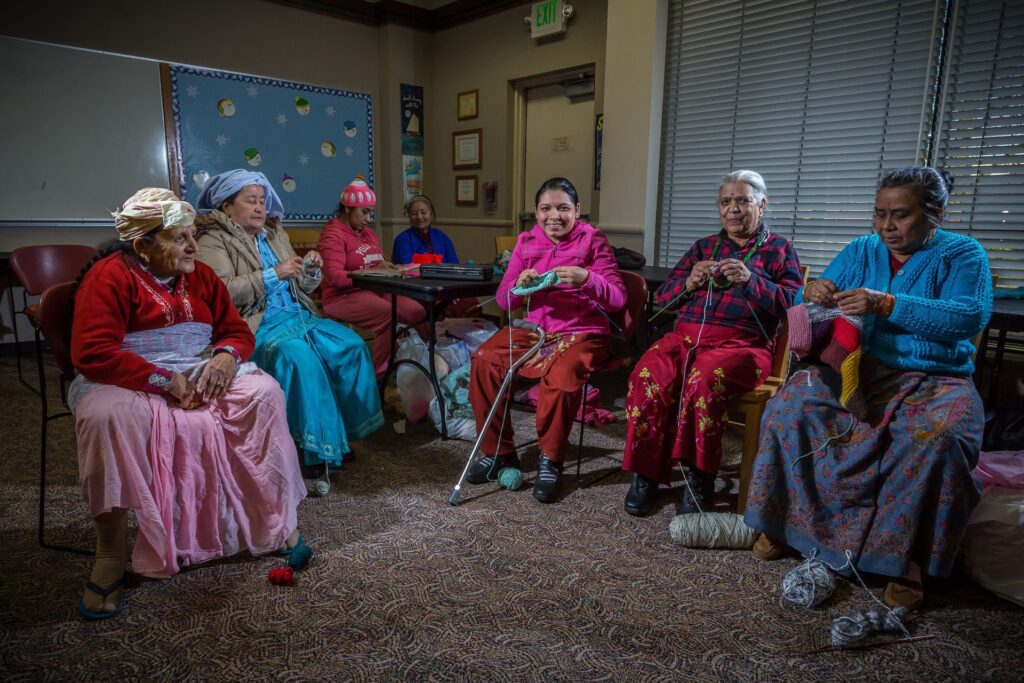Multiple sources of strong evidence indicates that peer support groups can improve newcomer mental health symptoms.
- Three systematic reviews, as well as four additional studies, demonstrate positive outcomes from peer support groups in various newcomer populations. Such groups appear to provide a unique benefit to both participants and newcomer leaders in enhancing social connections, expanding knowledge of community resources, and generally driving improvements in mental health, acculturation, and other outcomes.
- Many peer support groups are culturally appropriate and strengths-based. They recognize and build newcomers’ strengths, including by offering opportunities to support one another through community-based activities. Positive outcomes remained consistent across various formats and structures.
Strong evidence supports the positive effects of building social support through various other types of structured peer interactions.
- Peer support interventions in non-group-based formats have also demonstrated positive outcomes. Peer mentorship programs can help newcomer mentors build skills while supporting newcomer mentees with integration, problem solving, and relationship building.
Emerging research indicates that online support groups are an effective alternative to in-person groups.
- Research indicates that, although digital literacy may pose a challenge for some, online support groups are still effective across various populations. Evaluations have found similar, or better, outcomes in areas of attendance, satisfaction, and mental health symptom management.




